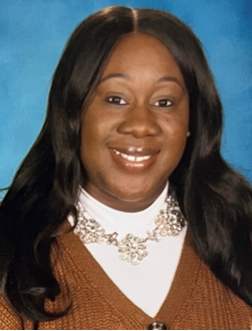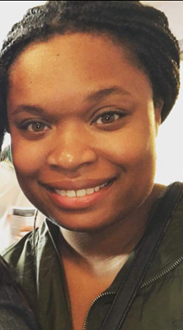School Mental Health Spotlight: Q & A with Highville Charter School
Highville Charter School in New Haven is one of four schools across the state piloting CHDI’s Student Peer Support initiative during the 2024-2025 school year. To learn more about their experience implementing this new model, CHDI Project Coordinator Rosie Breindel recently spoke with Highville’s Academic Dean for Grades 6-12, Claire Smith, and Behavior Specialist Davina Burke, who are serving as staff advisors to Highville’s peer support team. Their conversation has been lightly edited for length and clarity.
Tell me a bit about your roles at the school and your previous involvement with student mental health initiatives.
Davina Burke: As a behavior specialist, it is my job to identify the needs of students to help them become successful and maintain healthy relationships, boundaries, and create safe spaces for themselves and everyone around them... It is my goal to always be able to provide them with a space to feel accepted, a space to be open, a space to be expressive, and most importantly, a space to be supported.
Claire Smith: As both a teacher and administrator, I have always understood the correlation between mental health and academic performance. Students do best when they are feeling safe and supported, mentally and academically. In both my classroom and the school building in general, I make it a priority to ensure students are in a safe and accountable space.
Can you tell me about your roles as staff advisors in the Peer Support initiative? How did you get started?
Burke: Meetings occur once a week with the student peer support team. [Ms. Smith and I] assisted students with their campaign materials and in preparing for their introductory presentation to the student body.
Smith: As advisors, we helped guide students through the process of solidifying their campaign, material design, and events. This initiative was actually an evolution from a mentor group we started last year, in which we identified a range of students to begin the work of learning coping strategies, conversation skills, emotional intelligence, critical thinking and engagement, and reflective practice. A few of the students who were part of the mentor program are now part of the current Peer Support Initiative.

Davina Burke
Behavior Specialist
Highville Charter School

Claire Smith
Teacher and Academic Dean for Grades 6-12
Highville Charter School
What is the biggest change you’ve noticed as a result of implementing this program? What immediate impact have you seen?
Burke: A change that I have noticed is that… our students have gained confidence in sharing their experiences with others. It also seems that students have become more accepting of [other] students who face mental health challenges, without judgment. One immediate impact was partnership – it was evident that students encouraged one another as well as challenged one another.
Smith: Yes, one of the biggest changes that I have noticed is that students seem to be more understanding of each other. When students are having challenging moments, there is much more space and grace given. Students feel more comfortable talking about mental health and supporting each other. Students have also been more confident in advocating for themselves and each other when it comes to needing support, which has been amazing to see.
Who is the Peer Support program helping the most - and how?
Burke: This initiative has been helpful in multiple areas of our school. As a staff member, it has helped me become less controlling… [realizing] that we can educate our students, give them the tools, and allow them to accomplish their goals. It’s refreshing to see that, as educators, we could take a step back and observe their hard work unfold. It has been most helpful to our students and the student body in general; they have been a resource to one another.
Smith: This initiative seems to be helping students who may have been reticent to ask about and or share their experiences with mental health. The Peer Mentors did a good job of normalizing talking about mental health.
What were some of the challenges you experienced in implementing this program? Was it hard to do?
Burke: It was not hard to do. We often spoke about how important it is to have students exposed to this opportunity… A challenge that we often face in the school setting is time management. It was always important to meet with our team, to plan and discuss the best ways to execute the initiative, but sometimes, our schedules didn’t allow it… Focusing on the task at hand was also sometimes a challenge, but we were always able to shift the topics back to our meeting goal.
Smith: I would also not say it was hard. The main issue that we encountered was scheduling. In our roles, Mrs. Burke and I would sometimes get pulled into meetings. We also had to work with students to develop their confidence with public speaking.
What do students think of the program?
Burke: The students seem to enjoy it. They were always vocal with their opinions about how to execute their message, designs, and presentations. Students felt that they were being helpful.
Smith: The students enjoyed being peer mentors and took pride in it. They liked the idea of helping their classmates navigate through potentially challenging situations. We have several students who have come to ask if they could be peer mentors for next year, which has been exciting.
How has CHDI's technical assistance supported your implementation of the Peer Support model?
Burke: [Project Coordinator] Mackenzie Wink was always available to meet with us. She would join us on Tuesdays during our meetings… It was nice to have her for assistance and as a resource.
Smith: The technical assistance and support was helpful in the implementation process. The materials provided were helpful in keeping us on track with timing, and Mackenzie has been invaluable in providing a sounding board for students’ ideas.
“I have learned that any mental health or SEL initiative geared towards students must have the support, guidance, and buy-in of the student body.”
What is something you’ve learned this year that your school will continue to utilize moving forward?
Burke: I’ve learned that the students [on the] peer support team have a better sense of need for their peers. As adults, we often think that we have a good gauge on what students’ needs are or what is best for them. But having true representation for themselves, allowing students to advocate, is vital for a successful program.
Smith: It might seem obvious, but I have learned that any mental health or SEL initiative geared towards students must have the support, guidance, and buy-in of the student body. In schools I have worked in, there has always been a top-down approach to mental health, and programs are dictated to students and staff based on what the perceived issues are, to various degrees of success. What we think is happening as adults and what students are experiencing may be two very different things. Having student-driven initiatives and programming has increased the impact of the messaging.
Do you have any advice for other schools that may implement this program in the future?
Burke: My advice to other schools who plan to do this would be to give the students the space… they need to be the driving force. They may also need an assist, and that is okay.
Smith: I would tell schools to be intentional about who they select for their first group of peer mentors. You want to choose students who are not only willing, but whom others would feel comfortable going to. The group of students we selected was a driving force of our program’s success.
What do you hope the long-term impact of this program will be?
Burke: Long term, we are hoping to see more students utilize the peer support team. My hope is that [over time], students will familiarize themselves even more… it would be amazing to have this become a norm to better support their mental health.
It is important to me that our students get their hands on the right information. In today’s society, they are often fed information on social media that may not be appropriate or relevant to their needs. I am hoping that we can become one of the first stops for students facing mental health challenges.
Smith: In the long term, I hope students gain a better understanding of mental health, coping skills, and their own emotional needs. I also hope that they continue to develop their skills as advocates for themselves and others.
Read a Q & A with another participating school here.
Get Involved
Interested in bringing the Students Supporting Students model to your school?
Submit this form to download our Peer Support guides for advisors and students. We strongly encourage schools to contact us before using the guides so that we can provide guidance and support to help you implement the program successfully.
Get free technical assistance and support
To get no-cost technical assistance and support to implement Students Supporting Students in conjunction with other school mental health initiatives as part of a comprehensive school mental health approach, contact Sarah White, LMSW, or click here to learn more about the CONNECT IV Students initiative.
Special thanks to former CHDI Project Coordinator Mackenzie Wink, PhD, who played a lead role in developing the Students Supporting Students pilot and supporting student peer teams, and to Project Coordinator Rosie Breindel for interviewing schools for this feature.